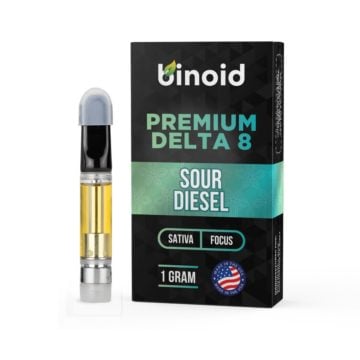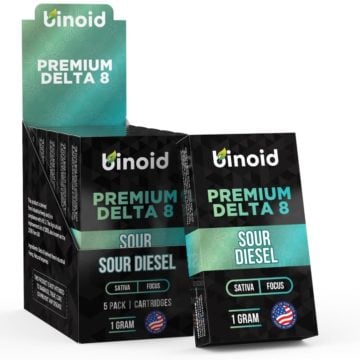
States Allowing Legal Recreational Use of Weed: A Comprehensive Guide
In this guide, we will provide an in-depth examination of the U.S. states that have embraced the legalization of weed for recreational purposes. By delving into the intricacies of regulations, possession limits, purchasing protocols, and broader societal implications, we aim to offer a comprehensive resource for understanding the evolving landscape of recreational cannabis use across different states.
This post is intended as information and for general knowledge only. It is not a substitute for medical advice, diagnosis, or treatment. It is recommended that you talk to a healthcare professional about this before introducing cannabinoids into your daily routine (especially if you have been diagnosed with any medical conditions or are under any medication). It is not recommended to drive or operate any machinery when using cannabis- or hemp-derived products. Use responsibly!
States Where Recreational Weed is Legal
The landscape of marijuana laws in the United States has shifted dramatically in recent years, with numerous states moving towards legalizing the adult use of cannabis. Currently, recreational marijuana use is allowed in several states, including Washington State, New Mexico, and Maryland. However, the specifics of these laws vary significantly from one state to another.
Key Regulations and Restrictions
One of the core aspects of managing recreational cannabis is setting and enforcing regulations that ensure responsible use. Age restrictions play a vital role in this. Individuals must meet minimum age requirements, such as being 21 years old, to purchase and possess marijuana legally for recreational purposes. These regulations are enforced to prevent underage consumption and to maintain public health and safety.
Possession Limits
Understanding possession limits is crucial for individuals who wish to enjoy legal marijuana. Different states impose varying limits on how much cannabis one can possess at any given time. These limits are typically measured in ounces or grams and are subject to distinctions between private and public spaces. For instance, while you may be allowed to possess a certain amount of recreational weed at home, the rules might be stricter in public areas to ensure responsible consumption.
Purchasing and Sales
The process of purchasing recreational cannabis involves navigating state-specific regulations. To obtain cannabis products, individuals generally need to visit licensed dispensaries. These establishments are closely regulated by state law, ensuring that the cannabis business operates within legal parameters. Strict limits on purchase quantities and frequencies are also implemented to prevent excessive usage and potential abuse.
Medical vs Recreational Cannabis

It’s important to note the distinction between medical cannabis and recreational marijuana use. While recreational use is aimed at adults seeking to use cannabis for personal enjoyment, medical cannabis programs cater to patients with specific medical conditions. In some states, patients registered under the medical cannabis program can access cannabis products that address their health needs, even in states where recreational cannabis is legalized.
Impact on Economy and Society
The impact of marijuana legalization extends beyond individual consumption. The economic benefits are undeniable, with tax revenue, job creation, and increased tourism contributing positively to state economies. Simultaneously, the social and criminal justice implications of legalization are significant. Rates of arrests and criminalization related to marijuana possession have decreased in states that have embraced legal weed.
Challenges and Future Outlook
While the benefits are evident, challenges remain. Critics argue that legalizing recreational weed could lead to increased usage among youth. The ongoing debate over federal marijuana laws also adds complexity, as state laws might be affected by potential nationwide legalization. As public opinion on cannabis shifts, policymakers will continue to grapple with evolving attitudes and potential regulatory changes.
Travel and Interstate Considerations
Navigating the intersection of state laws when it comes to cannabis possession while traveling can be perplexing. Individuals need to be aware of the legal implications of crossing state lines with marijuana products, as possession laws vary. The issue of interstate commerce within the cannabis industry poses unique challenges, particularly concerning the transportation of cannabis products across state boundaries.
Lessons from Early Adopter States
States like Colorado and Washington were among the pioneers in legalizing recreational marijuana use. Their experiences have provided valuable insights into refining regulations and addressing unforeseen challenges. These early adopter states have set the precedent for other states considering marijuana legalization, illustrating how policies can adapt and evolve over time based on real-world outcomes.
Conclusion
By navigating the intricate landscape of recreational cannabis legalization in the U.S., we’ve gained a comprehensive understanding of the nuances that shape the policies, regulations, and societal impacts across different states. As these laws continue to evolve, staying informed about the complexities surrounding legal recreational weed is crucial for both individuals and policymakers alike. The journey toward responsible cannabis management involves addressing challenges, reaping benefits, and shaping the future of cannabis in the United States.
















